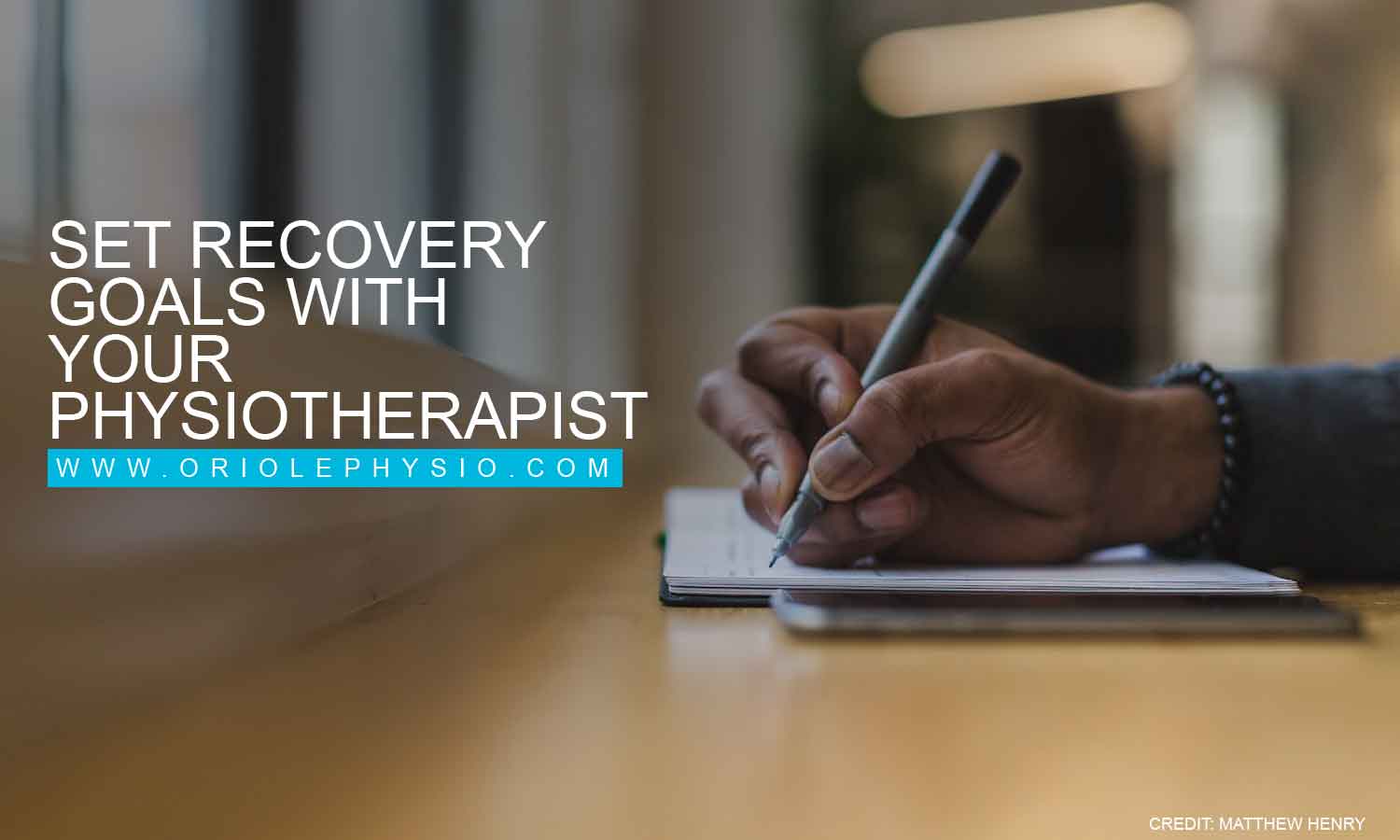Top 8 Physiotherapy FAQs
If you’ve never been to a physiotherapy session before, you may not know what to expect. How should you prepare for it? Will it hurt? How does it work? When you are attending physiotherapy with Oriole Physiotherapy, we’ll make sure that during this collaborative form of treatment you’ll be part of the process every step of the way.
We understand that it’s natural to have questions and to feel nervous before your first session. That’s why we’ve put together this handy list of the top eight queried physiotherapy FAQs, so you can feel assured and up-to-speed coming to your first appointment.
1. Do I Need a Doctor’s Note or Referral for Physiotherapy?
While many clients assume that they need a doctor’s note to receive treatment, the good news is that no, you don’t need a doctor’s note to see a physical therapist. A registered physiotherapist can diagnose disorders, dysfunction, and injuries within the scope of their skills without the referral of a doctor.
If you will be filing a claim against a private health plan, consult your insurer for their requirements.
2. Does OHIP Cover Physiotherapy?
The Ontario Health Insurance Plan (OHIP) covers the cost of in-clinic physiotherapy for youths under the age of 19, seniors over the age of 65, and many other patients recovering from illness, surgery, or injury. You will need a referral from a doctor or nurse practitioner and a valid health card. To see if you’re eligible, visit the OHIP website.
Your physiotherapist will determine the number of treatments you can receive under OHIP — this is referred to as an Episode of Care. However, OHIP doesn’t cover physiotherapy treatment for a patient who’s also covered by another source such as worker’s compensation or motor vehicle accident benefits. Also, OHIP doesn’t bear the cost of group exercise classes, fall-prevention classes, supplies needed for home use, or treatment to maintain an existing level of function.
Again, if you will be filing a claim against your private insurance, consult with them first to ensure coverage of additional costs.
3. What Can I Expect During Physiotherapy Sessions?
Over the course of several sessions, your physical therapist may use a variety of methods of treatment including massage, stretches, exercises, ultrasound, and manual manipulation of your joints to assist with pain management and to improve physical mobility.
Your first session with your physical therapist is typically an initial evaluation, including assessing how your injury or condition is impacting your well-being. During this session, your physical therapist will spend time getting to know you and understanding your condition, concerns, and goals.
For example, you can let your physical therapist know your previous levels of physical function and how your condition is affecting your life today. Your physical therapist will then take measurements of your impairments, and together, you can discuss a treatment plan for your upcoming sessions, and what level of recovery is expected and desired.

4. What Do I Need to Bring to My First Physiotherapy Session?
When attending your first physiotherapy session, it’s essential to bring your ID, insurance cards and information, and a list of the medications you’re currently taking. Additionally, if you have any recent reports from doctors that include details from any surgery, MRI, or X-Rays you’ve had, it may be useful to bring these too although they aren’t necessary. If you’re currently using a splint, sling, crutches, or any other physical aid, bring it along to the appointment too.

5. What Should I Wear for a Physiotherapy Session?
When attending a physiotherapy session, you should aim to wear clothes that make you feel as comfortable as possible. As your session may include stretches and moderate exercise, it’s best to dress as though you’re going to the gym. Some clothing suggestions include loose t-shirts, shoulder-tank tops, shorts, and pants that pull up over the knee if there are any injuries to reveal. Wear appropriate footwear, such as athletic shoes, rather than sandals or high heels, which make exercise more challenging.
6. How Long Does a Physiotherapy Session Last?
Most physiotherapy sessions typically last between 30 minutes and an hour, depending on the nature of the condition and the activities involved. The clinic will inform you of the expected duration of the scheduled session.

7. Will It Hurt?
Physiotherapy is a safe practice and shouldn’t hurt. It’s important to remember that because you’ll be using parts of your body that are injured or suffer from chronic pain, physiotherapy can be challenging. There is a possibility that you may feel sore after stretching or having a deep tissue massage, for example.
Remember that your physical therapist has given you a plan based on your particular needs, and although the sessions may feel difficult, your best interests are at heart. Physiotherapy will push you, but it shouldn’t be too much that it’s unbearable. Stick with the sessions, and you’ll soon reap the benefits.
8. How Long Does It Take For Physiotherapy to Work?
Unfortunately, there’s no set answer to this question. As each person and each condition is different, the rate of healing will also be variable. While it may take one person three sessions to walk a small distance after knee surgery, another patient may need five sessions to reach the outcome.

The differences in pain perception, motivation, and general healing rate impact the process. Instead of aiming for a date to complete therapy, work with your physiotherapist to set up goals you’d like to achieve. Focus on these goals, rather than time, and you will put less pressure on yourself during the healing process. Reward yourself when you complete each goal, regardless of how much time it’s taken you to get there. Your physical therapist will be happy to work with you to manage these goals and keep you on track.

Whether you’re thinking about booking your first physiotherapy session, or you’re planning for an upcoming appointment, we hope our list of the top nine physiotherapy FAQ’s has helped settle your mind.
When you need a reliable therapist who will take the time to work with you and address your concerns, contact Oriole Physiotherapy & Rehabilitation Centre. We will walk you through your therapy to improve your well-being and regain your optimal health.
Call us today at (416) 221-0772 to schedule an appointment, or use the online form to book a session.

